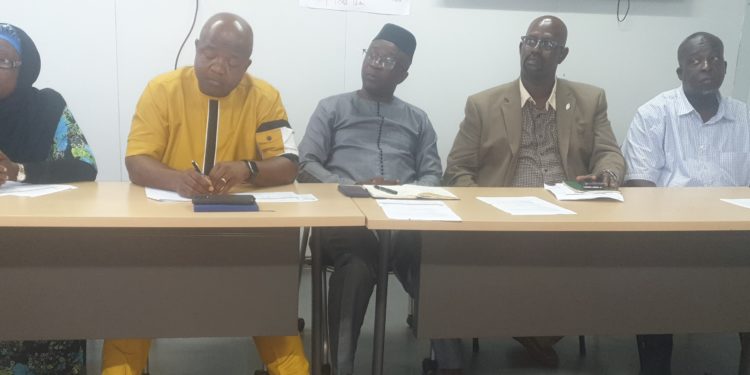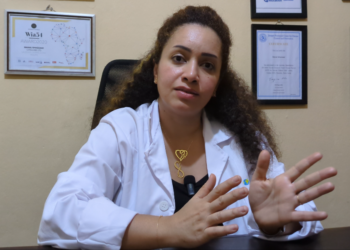By Morrie Koroma
The annual Hajj pilgrimage, one of the five pillars of Islam, saw around 1.8 million Muslims gather in Mecca, Saudi Arabia this year. The pilgrimage, obligatory for all Muslims who are financially and physically able, involves several significant rituals over five days, starting with the Tawaf at the Grand Mosque and culminating with the final Tawaf before leaving Mecca. Despite the spiritual significance, this year’s Hajj was marred by extreme heat, with temperatures exceeding 50°C (122°F), leading to at least 1,301 deaths, primarily among unauthorized pilgrims, said Saudi authorities.
As the pilgrims prepare to return home, the National Public Health Agency of Sierra Leone and the Ministry of Social Welfare held an emergency press conference on July 4, 2024, at the Emergency Operations Centre Hall, Cockrill, Wilkinson Road, Freetown. The conference aimed to outline the plans for welcoming the pilgrims back safely.
The press conference featured key officials, including Mohamed Haji-Kella, Deputy Minister of Social Welfare, Dr. Mohamed A. Vandi, Deputy Executive Director of the National Public Health Agency, members of the Hajj committee, and members of the press. The session was chaired by Mr. Harold Thomas, Program Manager of Health Education in the Ministry of Health.
In his statement, Dr. Vandi highlighted the immense scale of the Hajj, noting the unique public health challenges posed by such a large gathering. He emphasized that while COVID-19 is no longer an international health emergency, it remains a national concern. He went on to disclose that the government had implemented precautionary measures to ensure the health and safety of returning pilgrims and the general public.
“We have stationed an advanced team at Lungi airport, ready to conduct swift testing and data entry,” Dr. Vandi said. “Each pilgrim will undergo a single swab test which will be for COVID-19 and fourteen other diseases. The process is designed to take no more than five minutes per person.”
Deputy Minister Haji-Kella assured the public that the government was taking all necessary steps to ensure the safe return of the pilgrims.
“We expect our pilgrims to return home safely and to reunite with their families without any health issues,” he stated. “All the pilgrims were well-vaccinated before their journey, and there are no suspected cases of illness. These measures are purely precautionary.”
The first batch of 267 pilgrims is expected to arrive on Saturday, July 6, 2024, followed by a second batch of 346 on Monday, July 8, 2024. Haji-Kella expressed gratitude to the Hajj committee for their exceptional organization of this year’s pilgrimage.
Sierra Leone reported only one death during this year’s Hajj, attributed to natural causes. Six other deaths involved individuals of Sierra Leonean background but holding USA passports and were not included in Sierra Leone’s official count.
If anyone is positive for any of the diseases that will be tested for, the individual will be self-isolated as the government did not put any isolation camp in place, but there will be a proper monitoring team all over the country, according to officials.
The press conference underscored the collaborative efforts of the National Public Health Agency, the Ministry of Health, the Ministry of Social Welfare, and other agencies to safeguard public health as the pilgrims return. The government is urging the public to support these efforts and ensure a smooth and safe homecoming for all pilgrims.
Officials also appeal for the public to support these efforts by helping to disseminate accurate information.






















